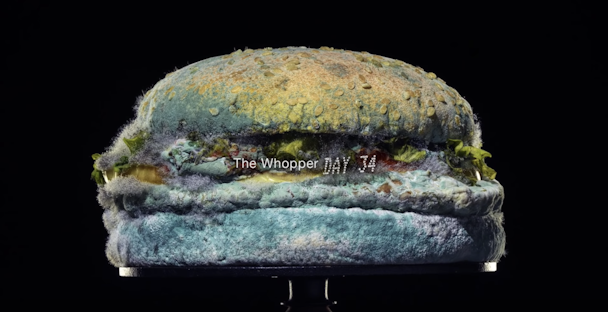Banning junk food from TV an ‘irrelevant symbolic gesture’ that won’t reduce obesity
Banning TV ads for foods that are high in fat, sugar or salt (HFSS) is an ”irrelevant symbolic gesture” from the government, argues Sanchit Jain, a technology and media analyst at Enders Analysis, following a study by the firm that returned some very critical findings.

Obesity is a pandemic that has nearly trebled since 1975. In England, 64% of adults and 30% of children (aged 2-15) are overweight or obese.
The consequences for public health are far-reaching and NHS England’s most common killers (cancer, heart disease, stroke, lung disease and liver disease) are all heavily linked with obesity. Furthermore, the UK spends more each year on the treatment of obesity and diabetes than it does on the police, fire service and judicial system combined.
Though shocking, we have known for decades just how bad the crisis is, but very little has been done. However, the Covid-19 crisis has catapulted obesity to the forefront of the public health discussion after it was identified as a comorbidity factor of the virus. In fact, after his hospitalisation, Boris Johnson reportedly said his symptoms from the virus were exacerbated due to his weight and has since escalated his commitment to addressing obesity in the UK.
This government’s track record in meaningfully addressing obesity is spotty, spending a paltry £1bn a year in prevention activities and public health campaigns to tackle it.
It identified TV advertising of HFSS foods as a potential propagator of childhood obesity. Last year, the Department for Digital, Culture, Media & Sport (DCMS) and the Department of Health & Social Care (DHSC) published a consultation calling for views on options across broadcast and online media to reduce children’s exposure to HFSS food advertising. Although an existing ban on HFSS advertising in programmes with particular appeal to children has been in place since 2007, with the continued prevalence in obesity the DCMS proposes a complete ban on HFSS TV ads.
While advocates of an extended ban would argue that less HFSS advertising can only be a good thing for reducing obesity, in reality it would not lead to any measurable reduction. Obesity is a behavioural and socioeconomically driven issue that requires an equally focused intervention to be effective. An intervention such as an extended HFSS ban would be an irrelevant symbolic gesture.
In the decade since the existing ban from programming designed to appeal to children was implemented, the prevalence of childhood obesity has remained undeterred. The futility of a further TV ban is emphasised when compared with successful behavioural policies such as the Health, Exercise, Nutrition for the Really Young (HENRY) programme introduced in Leeds, which trains early-years workers and families in relationships, wellbeing, nutrition and exercise. Consequently, Leeds became the first city in the UK to successfully reduce childhood obesity prevalence.
Furthermore, a ban on HFSS TV ads won’t mean that the ad spend disappears. Instead, estimates show that under an additional ban, 82% of ad spend would shift to less regulated and more targeted media like online and could encourage further price promotions and discounting of HFSS products, thereby facilitating the additional purchase by households. Moreover, TV viewing by children has been in decline for over a decade, with Barb reporting that children aged 4-15 watched 54% less commercial broadcast TV in 2019 than in 2010. Instead, children have been opting for online alternatives like YouTube and OTT services, meaning they could end up seeing more HFSS advertising as a result of the ban.
So is there an upside to banning all HFSS TV advertising? Well, according to DCMS’s own impact assessment, it would be a meaningless reduction of 1.7 k/cal per child per day.
The big losers from this ban would be broadcasters who, already badly affected by the pandemic, could lose millions in revenue if HFSS ad spend is pulled. This is ironic since broadcasters commit hundreds of hours of programming to promote healthy eating, exercise and to educate children on an overall healthy lifestyle. ITV, for instance, encourages primary schools across the UK to take up ‘The Daily Mile’ by advertising the initiative across its flagship daytime programmes, social channels and online. The initiative was taken up by a further 656,000 children in 2019 than in 2018 and burns up to 80 k/cal per day.
Government policy should be based on evidence and necessity. Reviewing the evidence cited in the consultation, there are clear signs of factual ‘cherry-picking’ by the government. The ban in its current form is already based on weak evidence and a further ban is baseless.
The aim of reducing obesity across the population is a necessary and achievable goal. Government intervention is required to persuade people of all ages to adopt better health, exercise and eating lifestyles. The solution is in establishing behaviour-driven policy and, as such, collaboration with broadcasters should be encouraged instead of holding TV advertising as the culprit.
The extended ban is being sold as a solution with significant upside and very little downside, but the evidence is contrary to this. Further TV advertising restrictions should not be pursued. The government must tackle the obesity problem at the source.
